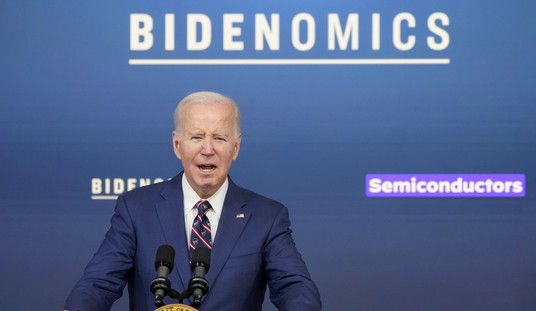A reader identified as progressoverpeace asks:
Don’t you feel a little silly about the last article you wrote, in which you claimed that Sarkozy was too smart to make such a moronic deal?
To be exact, I wrote: “I don’t think he [Sarkozy] engineered their [the nurses’ and doctor’s] liberation for the express purpose of cancelling Ghadafi’s moral debt and getting into bed with him for luscious commerce.”
And the answer is “No, I don’t feel silly for writing that. I stand by it, as I will explain below.” I do feel silly for claiming Chirac’s daughter Claude has a son “fathered by a Muslim judoka.” The information came from reliable sources; I was repeatedly encouraged to publish it in the United States so the world would know that Chirac was Islamized by ricochet; now I’m told it’s an urban legend.
I feel silly for writing that Sarkozy was going to Miami-I heard it on French TV-when everyone knew he would vacation in Wolfeboro N.H.
Over the past two weeks the Libyan hostage story has been snaking its way through the media, raising its head in der Speigel, Newsweek, al Jazeera, the Washington Post, and Time Magazine among others. My good friend Daniel Schwammenthal skewers “Nicolas d’Arabie” in the Wall Street Journal Europe, and most serious commentators join him in castigating the French president for his behavior in this affair. So I must be silly. Reliable journalists base their judgments on hard facts and I indulge in intellectual dillydallying, yes?
The problem is, all these analyses rely heavily on one story, as told by Ghaddafi’s son Saif al Islam to Natalie Nougayr√®de of Le Monde. Details from that interview have become “true” by virtue of constant repetition. Journalists worldwide base their analyses on these “facts,” despite the steady flow of disavowals, contradictions, and doubts about their credibility.
On August 2nd, the day after the Monde interview, Saif al-Islam told Newsweek’s Christopher Dickey that Libya had used the falsely imprisoned medics to blackmail the Europeans. But, he said, they use blackmail too. “While the medics suffered, governments and multinationals were cutting deals.” Dismissing what Dickey calls “an image-enhancing jaunt for [Sarkozy’s] whimsical wife, C√©cilia,” Ghaddafi junior says the medics were released because the French president was “more flexible.” And repeats his claim that the Qataris forked up the money. Not quite as obsequious as Le Monde’s Nougayr√®de, Dickey mentions that the Ghaddafis are vehemently opposed to a two-state solution for Israel. He almost taunts the young Ghaddafi about those “product-sharing agreements” that make Libya so attractive to foreign companies. “Yeah,” said Saif al-Islam. “We have sharing agreements. It’s very tricky whether they own the oil or not. Legally, it’s very tricky.”
France 2 news, August 2nd: UMP [Sarkozy’s party] deputy Axel Poniatowski, member of the Parliamentary Foreign Affairs Commission, tells a bespectacled newscaster that [Foreign Affairs Minister] Kouchner thoroughly briefed the commission; there are no dirty secrets. Can’t you see, he asks the astonished newsman, Saif al-Islam’s interview is for domestic purposes? He is embarrassed. The medical personnel were released and he has to claim that Libya obtained something in return. They didn’t. Poniatowski explains that the famous deals are nothing new; negotiations have been going on since 2004, when the embargo against Libya was lifted. He concludes: I certainly hope our companies do sign contracts with them. People like [Socialist party chief] Fran√ßois Hollande would prefer to see the nurses and doctor go back to jail in Libya!
A self-serving interview in Le Monde? Makes sense, doesn’t it? The old fox was outwitted, the young wolf tips the scales back in his favor, international media like the story, and the more it’s told, the more it seems to be true. Besides, no one is denying that European countries want to make deals with Libya or that Libya is trying to get free membership in the society of respectable nations.
Natalie Nougayrède, the Monde journalist whose complacent interview is taken as gospel truth, attracted the attention of a French-based opposition group, Iran-Resist, for her fanciful account of a visit to Iranian nuclear sites with a select group of journalists, including Guardian reporter Julian Borger.
Borger’s straightforward report—Is Iran paranoid or does it really have something to hide?-filed from Isfahan on August 2nd, describes a tour, offered by the Foreign Ministry “as if we had won Willy Wonka’s golden ticket,” that turned out to be a dud. First stop Natanz-cancelled. Then Arak and a visit with Ahmadinejad in person-both dropped from the program. Isfahan turned into a tourist’s eye view of the city with a squint into the plant where “yellowcake” uranium is transformed, plus a documentary film to the glory of Iran’s nuclear program. The anti-climactic tour ended with a quick look at Bushehr, under construction, where the Russians avoid the Iranians.
Nougayr√®de’s version-Bushehr, Isfahan; voyage to the heart of the Iranian atom–filed on 28 July, begins with a local color description of the Ispahan site, pans to flowers on the path, and rolls right into the buildings–mural inscriptions in the lobby, the youthful director, the technological installations, his pride and glory–all reported as if she had seen them in reality. In reality she must be describing the film…which she mentions in passing as if it were a small extra. Then, in a flashback, she hints at the circumstances-a few Western journalists invited by the Foreign Affairs Ministry to visit the sites and calm rumors about Iran’s nuclear program.
In her version, the Natanz and Arak visits aren’t promised and cancelled; they are just not included. Anyway, she says, journalists don’t have the technical know-how to determine what’s going on at these controversial sites. At Bushehr, a dusty construction site protected by anti-aircraft guns, an employee assures her the Americans wouldn’t dare try to bomb them. Flashback or fast forward to Teheran where a government official says the Russians use us as pawns in their game with the Americans. They’ll never deliver the promised fuel. The Iranian director at Bushehr says they’ll be independent-of the Russians, explains Nougayr√®de-within a year.
Back to Teheran where she gives the last word to Ali Larijani, Secretary of the Supreme Security Council, who upbraids Western nations for never keeping their word. “Why should we believe them when they say they’ll supply us with nuclear fuel?”
As Saif al-Islam was flitting from one interview to another, changing his story at each turn, a Libyan official warned that the young Ghaddafi has no official government position. He speaks for himself.
What prompted Ms. Nougayr√®de (August 7) to review the story and “clear up the fuzzy parts”? In fact she brushes over them with a feather duster of anonymous diplomatic sources.
Q. Did Qatar put up the 400 plus millions?
A. Her source says they wouldn’t have done it without something in return.
Q. What is the exact nature of Franco-Libyan military cooperation?
A. Ghaddafi’s son gave details. The French deny them. Sarkozy claims there was no connection between the arms sales and the liberation of the nurses and doctor, but “diplomats knowledgeable about the context” say the contracts couldn’t be signed unless the prisoners were liberated. The problem was already raised when Chirac went to Libya in 2004. Technically the contracts could be signed while the nurses and doctor were in prison, but it would have been bad for France’s image. Saif al-Islam claims he asked Sarkozy to accelerate the military agreement, and the French president complied. Claude Gu√©ant, who was present throughout the 48-hour marathon negotiation that ended with the liberation of the hostages, says that’s not the way it happened. But, writes Nougayr√®de, the president expressed his satisfaction at bringing employment to French workers with these contracts. So, she concludes, his role in the military-commercial agreements remains to be clarified.
Why did Saif al-Islam tell his side of the story to a series of Western journalists, while the French president said nothing and then, when he did express himself, sound “confused”? Was Saif al-Islam trying to exaggerate his role? Was it for domestic consumption? Does it relate to an internal power struggle “40 years after the coup d’√©tat that brought his father to power?” Are the Libyans trying, as often in the past, to set one European country against another?
Unnamed diplomats from EU nations confide, in whispers, that the EU had mishandled the negotiations. But anonymous German officials quoted in Der Spiegel accuse Sarkozy of sending his wife to upstage their MFA Frank-Walter Steinmeier, who knows Saif Al-Islam since they worked together to free the hostages in Jolo, Philippines in 2000. And, they say, Sarkozy upped the ante. As a matter of fact, concludes Nougayr√®de, Saif al-Islam did remark [during her interview] on the stunning generosity of the French offer, and feared the other Europeans would “denigrate the French role,” out of jealousy. [The remark does not appear in the printed interview.]
In a parallel article, signed with Jean-Yves Nau, Ms. Nougayrède reviews the French promise to renovate the Bengazi hospital where the children were contaminated. Aids specialists Luc Montagnier and Vittorio Colizzi, who investigated on-site, found the contamination was due to bad hygiene, and pre-dated the arrival of the Bulgarian nurses. Saif al-Islam claims the French have promised at least 300 million euros but French officials say the agreement is not yet signed. Colizzi wonders why oil-rich Libya would need a French subsidy, and suggests it would be better to ask the Libyans what they intend to do for the masses of Aids-infected children from sub-Saharan Africa living in Libya?
But the French media had more pressing issues to examine. The hostage affair was still boiling when a new anti-Sarkozy log was thrown on the fire. The home in Wolfeboro is allegedly going for 22,000 euros a week. The figure was shaken in the face of public opinion as if it had been drawn directly from the fires of hell. What is the French president doing in such an expensive cottage! Who is paying for it? If he’s paying, where does he get the money? If not, who’s the rich friend this time? This story did not make the international rounds. It only works in France. It’s been playing for two weeks, provoking righteous indignation from hardcore Marxists, sleek Socialists, and envious commoners.
Le Monde linked to last year’s guided tour of the property, which belongs to a Microsoft executive. The vacationing presidential party, remarked Sarkozy, includes family and friends for a total of twenty-two people. But a French correspondent reports that there are no Blacks or Hispanics in Wolfeboro… only rich white people, so the president is guilty of something, somehow.
Ex-president Chirac is vacationing in St. Tropez as a guest of François Pinault, rated N° 34 in the international list of billionaires. This raised no eyebrows. Chirac is an ex-president and, it is assumed, did not have rich friends when he was in office.
Various objections to the alleged hostage-exchange deal are raised and echoed. They should be examined more closely. August 7th: Socialists Jean-Louis Bianco and Bruno Rebelle, identifying themselves as Royalists, express their opposition to the nuclear energy deal with Libya in a Monde op-ed. The deal is ecologically absurd-Libya should use solar energy-and it undermines the efforts of civil society and certain courageous diplomats who are striving to promote nuclear disarmament in the Middle East or, more exactly, to convince Israel to give up its nuclear weapons.
Socialist deputies have filed a motion for a parliamentary investigation into the hostage release affair; PM Fillon, MFA Kouchner, and President Sarkozy jointly welcome the proposal with open arms and express their pleasure at the prospect of bringing all the facts out into the open.
Then Saif al-Islam admits, in an interview broadcast on Al Jazeera, that the Bulgarian nurses and “Palestinian” doctor were tortured to extort confessions and, further, that the Aids infections were caused accidentally by bad hygiene in the Benghazi pediatric hospital. He persists in denying the account of the Palestinian doctor but Achraf Alhadjoudj who is a Libyan citizen, intends to sue the police in the UN Human Rights court.
So what is going on? Why is Ghaddafi Jr. backtracking? Did he take advantage of the indulgence of Monde journalist Natalie Nougayr√®de to broadcast the most favorable PR package, knowing she would not challenge his statements, trusting her to relay them to a gullible world? Now that he has admitted the hostages were unjustly punished, how can he-officially or unofficially-expect Europeans to foot the bill for Benghazi hospital renovation? A German official is asking Libya for an explanation. And that’s just the beginning.
Is it silly to imagine that Nicolas Sarkozy outsmarted Ghaddafi? Do I deny that France is engaged, along with its European partners, in negotiations for military-commercial cooperation with Libya? No.
But that wasn’t the news item. The news was that the hostages, held for eight years in Libyan jails on trumped-up charges, were set free BEFORE the deals were clinched. Sarkozy was not president of France when these deals were being negotiated. Other European leaders, Tony Blair for example, and EU officials, Benita Ferrero-Wagner among others, were visiting Tripoli, meeting with Ghaddafi, contributing money to bogus humanitarian projects, implicitly admitting some kind of responsibility for the disaster that had befallen Libyan children in a Libyan hospital. Kaiser Daily reports on attempts by Romano Prodi in February 2007 to secure the release of the hostages. He negotiated with, guess who, Saif al Islam, who outlined the “road map” for an eventual agreement, including generous compensation for the families of Aids-infected children, and the release of al-Megrahi, imprisoned in Scotland for his role in the plane bombing over Lockerbie.
The same reporters who interviewed officials of the pan-European multinational EADS (Airbus, etc.) last week for confirmation of the eventual sale of anti-tank missiles could have exposed the deal a year ago. The almost forgotten Socialist presidential candidate, Ségolène Royal, could have cited it in her campaign against Sarkozy. And someone-Blair, Ferrero-Wagner, Chirac, or Prodi-could have gone to Libya last year and secured the release of the hostages with a flick of the wrist. Why not? The deal was just as good then as it was when Sarkozy intervened.
Years ago, I acted as interpreter for a French multinational engaged in a commercial dispute with a state-owned Libyan company. Judging from that experience, I would predict that it’s a long way to go before any of the deals you’ve heard about will ever be implemented, if signed. That Franco-Libyan dispute was being aired at the very moment when ayatollah Khomeini was leading the Iranian masses in a revolt that would ultimately overthrow the Shah. French company executives would discuss the situation in whispers, before the Libyan party arrived for the day’s session. Wondering if they should recall their personnel in Iran, they concluded that it was not necessary. “This will blow over.”









Join the conversation as a VIP Member